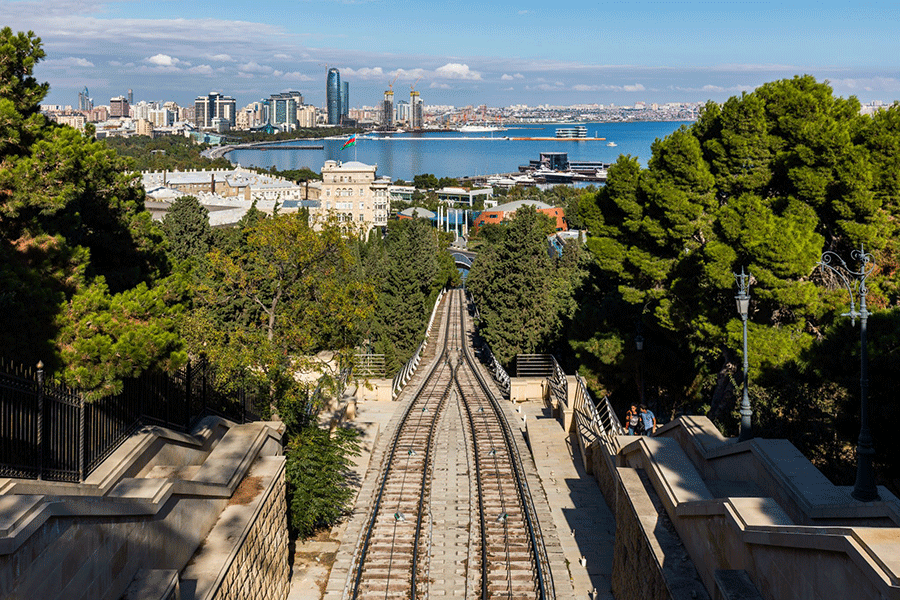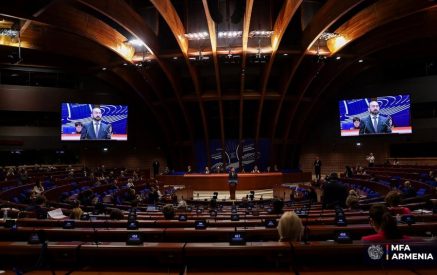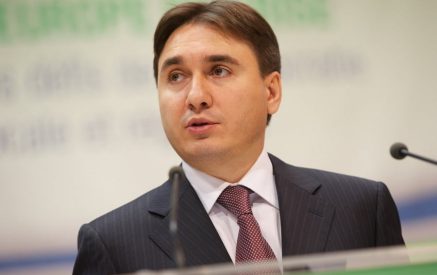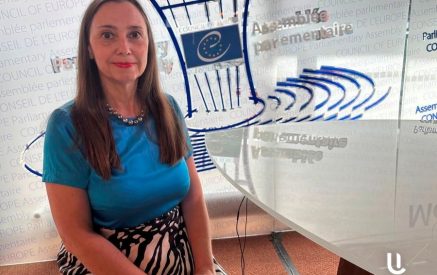ISPI (The Italian Institute for International Political Studies )
by Rasmus Canbäck
Blankspot, Investigative freelance journalist
The scandalous methods of pure bribery may have come to an end, but the dubious Azerbaijani lobbyism remains.
Caviar symbolizes a luxurious gift and in diplomacy implies an expectation. The act of giving a gift creates an expectation of reciprocity, whether through a direct request or through an indirect loyalty that is built over time. For an investigative journalist, the correlation between a bribe (or a gift) and a political footprint or a positive statement is what defines the components of a completed act of Caviar Diplomacy.
Read also
In 2012 the European Stability Institute released its first report on this topic. The term, “Caviar Diplomacy,” circulated the corridors of the Parliamentarian Assembly of the Council of Europe (PACE) in the context of the Azerbaijani lobbyism. Many of the delegates had a sense that something was not right. Delegations to Azerbaijan were divided between those who got to ride limousines, and those who had to take regular taxis. Soon, the political footprints also began to reveal themselves.
An election observer report, whose approval is typically a formality, was voted down before it could be presented. Shortly thereafter, enough delegates voted against a decisive condemning resolution against Azerbaijan for it not to pass. Azerbaijan boasted it as a victory, claiming European support for the Aliyev government.
New lobbying methods
Caviar Diplomacy is a dark chapter in the history of EU institutions. Following the scandals, the delegates who worked for the Azerbaijani lobby organization, The European Azerbaijan Society, were permanently banned from the Council of Europe and juridical processes were initiated against the accused politicians. EU politicians thought that they with that could put the matter to rest. Or could they really do that?
The story of how Azerbaijan has changed its lobbying strategies after the scandalous years in PACE has never been presented in an efficient way. Even though the Azerbaijani dubious lobbying methods has continued in full force, the general perception of Caviar Diplomacy is stuck in the notion that it ceased after the scandals in PACE.
In my research, Caviar Diplomacy is divided into three different eras. (1) The aggressive lobbying, which the European Stability Institute revealed in two reports (2012 and 2016), took place from 2003 to around 2016. After that followed (2) the Academic Lobbying from 2015, and which has continued to this day. After the war in Nagorno-Karabakh in 2020, (3) the number of paid trips for journalists, decision makers and researchers have dramatically increased. I will leave the first era with the opening lines of this text.
Academic lobbying
In 2015, President Ilham Aliyev issued two decrees. By his order, the previously state-owned think tank ADA was converted into a university and a new state-owned think tank, Air Center, was launched. As a body functioning under the Foreign Ministry of Azerbaijan, ADA is a professional academic institution, where both teaching and research are carried out. Air Center is a more agile governmental think tank that serves as a counterpart for visiting diplomats, researchers, and journalists.
The purpose of ADA is to have a professional academic platform for the country’s future diplomats, but also researchers. This is done through the motto of influencing the perception of Azerbaijan through the academia. The question is whether it works.
Today, according to the research of the Azerbaijani scholar and conscientious objector Gubad Ibadoghlu, over 35 percent of the country’s education budget is allocated to ADA. Ibadoghlu is nowadays a prisoner of conscience in Azerbaijan.
The most publicized case of academic lobbying is the one of the Swedish think tank ISDP, which is funded by multiple governments (Sweden and the US among others), and which has ties to several American policy institutes that are also recurring in diffuse Azerbaijani contexts. Initially, the ISDP also received funding from the European Azerbaijan Society, but the organisation was shut down in 2017. A few years later the ISDP began to receive funds from a construction company owned by the Aliyev family. Furthermore, one of the main figures in the think tank’s Caucasus research, Frederick Starr, sits on the board of ADA.
The reports of ISDP help inform the Caucasus policies of several governments. Moreover, ISDP has become a platform for researchers who have close ties to Azerbaijan. In a decision from the MFA of Sweden to increase the funding for ISDP from November 2023, it reads that it was taken due to the changing situation between Azerbaijan and Armenia.
Additionally, Dutchman René van der Linden, who sits on the board of ADA was the chairman of PACE during some of the worst years of Caviar Diplomacy.
Loyalty through paid trips
After the war in Nagorno-Karabakh in 2020, Azerbaijan entered a new phase of lobbying. It immediately became important, both from a PR and a financial perspective, to show off the so-called liberated areas. In the Azerbaijani Foreign Ministry’s annual reports for 2021 to 2023, the numbers of foreign journalists who have travelled on press trips to the country are proudly reported. According to the reports, there were about 780 media workers visiting for the mentioned years (approximately 100 in 2021, 200 in 2022 and 480 in 2023).
A Swedish journalist, who travelled there in 2021, stated that the trip was fully funded by the Azerbaijani state and that there were indirect expectations that the reporting would be in line with their views. David López Frías, a Spanish journalist who visited in 2023, said that Azerbaijani state-controlled media misquoted him in a way that was damaging his reputation and that the quote did not reflect reality.
Members of the European Parliament (MEPs) also go on these trips. At least three irregular trips outside of the parliamentary annual cycle, of which at least two, were wholly or partly funded by Azerbaijan in 2022. At least one of the trips with two MEPs was in breach of the transparency regulations, since neither of the MEPs declared it. Revelations of one of the trips caused a minor scandal in the European Parliament. At least one of the MEPs has put proposals in their committee work of the Parliament that are aligned with the Azerbaijani view on regional development and another downplayed his criticism against Azerbaijan. The chairman of the Azerbaijani friendship group of the parliament, Andris Ameriks from Latvia, has notoriously voted against condemning resolutions against Azerbaijan.
A third category that is invited on these trips is researchers. Since 2020, Azerbaijan has organized up to ten conferences for foreign researchers annually. Several of them have taken place in the city of Shusha (Shushi in Armenian), which Azerbaijan has controlled since 2020.
Researchers from many foreign countries have participated. The same researchers who have gone on these trips have, in their publications afterwards, generally endorsed a narrative similar to the official one from the regime. Their publications are mainly found in non-peer reviewed academic journals. It is evident that those who are invited to the conferences are selected. The one who is critical will not receive an invitation.
One of the Italian researchers I spoke to said that he would never go on trips that are not fully covered and even less would he give interviews for free. After that, he has participated in several panels with direct ties to Azerbaijan. Several other international researchers I spoke to have stated that the trips to Shusha were funded by ADA or the MFA of Azerbaijan. This goes with the ISDP researchers but also others.
Getting conferences covered by the inviting party is not necessarily an issue and can be seen as, if not common, then at least occurring in some forums – the controversy is the outcome of the invitation. What is striking is also the scale of the academic lobbyism. Many of the researchers included in the loyalty networks of Azerbaijan end up writing biased articles. Yet again, the gift is met with an expectation. The trip is followed by a footprint, and the footprint is recorded in many of those cases.
On a positive note
On January 24, 2024, the story of Caviar Diplomacy took a new turn. PACE, which has been the institution most affected in Europe by Azerbaijan’s bribery, voted in favour of rejecting Azerbaijan its credentials for the year. It was the third attempt since 2005. The lack of an invitation to observe the presidential election on February 7th was the last straw. With a new generation of politicians in the assembly, the resolution was finally approved.
The vote is seen as a victory for those who have long criticized Azerbaijan’s lobbying efforts. However, it is important to note that the vote does not change the fact that the dubious Azerbaijani lobbyism continues. The methods are just different from before.
The logic of the regime is that a proxy with a foreign name is necessary to create a notion of legitimacy and break through a critical Western media and political climate. The proxies in this case are equal with researchers, journalists and politicians who have been included in the network of loyalists.
Where there are grey zones in transparency regulations and loopholes in codes of conduct, Azerbaijan is there to influence. In this context, foreign journalists face the challenge to give voice to the people of Azerbaijan, without letting the regime’s agenda, which is nurtured by the regime’s dubious methods and hence breeds mistrust, control neither the analysis nor the reporting.



























































